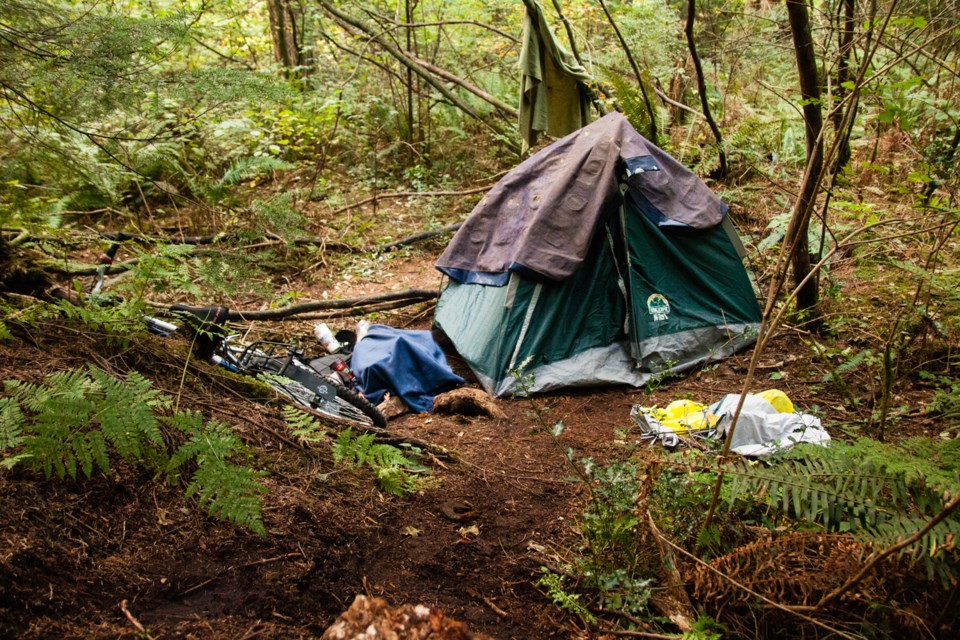At last count, Burnaby had fewer than 60 homeless people, yet homelessness is still a significant concern throughout the Lower Mainland and a hot topic leading up to B.C.’s municipal elections.
Homelessness was voted the second largest issue in Burnaby by our readers in a recent online poll, and there is a general consensus among mayoral candidates that homelessness needs to be addressed. But how, or even if, the city should be the driving force behind any permanent solutions is where candidates and slates differ.
Mayor Derek Corrigan’s Burnaby Citizens Association responded with its recent statement on housing and homelessness, acknowledging that homelessness is an important social issue throughout Metro Vancouver, but one that is not the responsibility of municipal governments.
“The BCA will always support social housing and treatment centres but will not perpetuate the problem of homelessness by creating overnight shelters that don’t lead anyone to permanent housing and don’t provide treatment for the many people in need of both housing and complementary medical care,” stated the BCA.
The statement emphasized the need for long-term solutions and touted Burnaby’s 100-bed Mental Health and Addiction Centre at Willingdon, which is about to close “because the provincial government sold the land to balance its budget.”
Rather than deflect the issue to the B.C. Liberals and federal Conservatives, Burnaby First’s Daren Hancott said the city must partner with other levels of government to tackle homelessness. He also noted the BFC would find room in the budget to help Burnaby’s displaced, with or without an intergovernmental partnership.
“If they didn’t do it, we would do it,” he said. “We would find a cautious solution because it’s a complex problem.”
Hancott also stressed that, unlike the stereotype, not all homeless people are mentally ill or drug-addicted, and Burnaby has many groups ready and willing to address the issue.
“There’s dozens of organizations that want to help, it’s just they don’t have the funding to do it and we’re not doing anything. When we see our brothers and sisters in Burnaby suffering, especially on cold nights and dark nights and windy nights, we need to do more.”
Independent candidate Helen Chang proposed establishing a homelessness committee and working with the province to provide more social housing. In the short term, she suggested creating a winter shelter, with a long-term goal of developing more affordable housing over the next five to 10 years.
“Whether or not we agree that homelessness is a community responsibility, homelessness is an issue and we should take care of (the homeless),” she told the NOW.
Allen Hutton and Sylvia Gung, who each ran for the mayor’s seat in the last election, both agreed homelessness is a top issue for the city. Hutton suggested Burnaby’s Task Force on Homelessness apply to the city to work out of city hall in an effort to engage the powers that be in the group’s initiatives.
Raj Gupta – who is running for mayor in Burnaby, council in New Westminster and school board in Vancouver – pledged he would provide homeless shelters in the city and construct more rental complexes.



